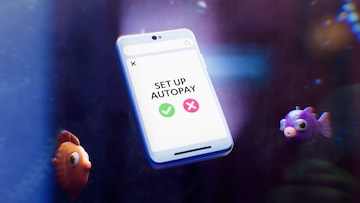


If you were hoping to learn that, say, Wednesday is the best day to pay your credit card bill, we’re sorry to disappoint you. In terms of days of the week, there really isn’t a “best” one on which to pay your bill. However, there is a date by which we highly recommend paying your bills, and that’s the payment due date.
If you were hoping to learn that, say, Wednesday is the best day to pay your credit card bill, we’re sorry to disappoint you. In terms of days of the week, there really isn’t a “best” one on which to pay your bill. However, there is a date by which we highly recommend paying your bills, and that’s the payment due date.
Any date after this ranges on a scale from “bad” to “worse.” You’re probably already aware of the importance of paying your bills on time in terms of your credit score as well as for avoiding penalties, higher interest, lower credit limits, and more. However, in response to the question of when to pay your bills, there’s an even better answer than “by your due date.” That answer is, “as soon as possible after your billing cycle ends.”
Here’s why:
IT HAS TO DO WITH CREDIT UTILIZATION RATE
Your credit utilization rate, or ratio, is simply the total amount of revolving debt you owe divided by the total amount of revolving credit available to you. So, if you have two credit cards, each with a credit limit of $500, your total available credit is $1,000. Now let’s say that you owe $100 to each credit card company, so your total debt is $200. By dividing your total debt by your total available credit—in this case, $200 ÷ $1,000—you get your credit utilization rate expressed as a percentage: 20%.
WHY YOUR CREDIT UTILIZATION RATE MATTERS
As you may know, there are companies that take the information in your credit report and express it as a score (the two main companies are FICO® Score and VantageScore®). Individual scoring models differ, but a common factor in all of them is your credit utilization rate, and it accounts for a significant portion of your score—roughly 30% of your FICO® Score!
LOWER CREDIT UTILIZATION RATE TYPICALLY HELPS YOUR SCORE
Many experts recommend that you keep your credit utilization rate at 30% or lower. The lower the percentage, the more beneficial it should be for your credit score. The higher it is, the more detrimental.
PUT IT ALL TOGETHER
Any balances on your credit cards will contribute toward making your credit utilization percentage higher, which could negatively affect your score, especially if it crosses the 30% mark. Consequently, if you pay off balances owed before their due dates, this will lower the numerator of your credit utilization rate, which could lower the percentage when the rate is calculated, which could give your credit score a bump.
So, if you have the means, you should consider paying your credit card bills early. Doing so will help drive your credit utilization rate lower.
JUST BE MINDFUL OF THE STATEMENT DATES
There is one caveat to remember: Don’t send in your payment before the end of the billing cycle. Credit cards have a billing cycle, and the opening and closing date of this cycle are typically a month apart. During this billing cycle, any charges on your card form the basis of your next bill, and the payment due date is usually a few weeks after the billing cycle closing date.
If you are so fast with your payment that the credit card company receives it before the billing cycle closing date, the company will probably apply it to the billing cycle in which it was received, and you will still need to make a payment on the payment due date. If you can afford to do so, no problem. But if you can’t, make sure the payment gets applied to the correct billing cycle by waiting for the cycle to close before making your payment.
No matter which actual date you choose to make your credit card payment, just make sure it’s before the payment due date on the statement. And don’t forget to factor in the amount of time it’ll take your payment to be received. If it’s an online payment, that should typically be within 24 hours, although it may take longer if you make it on a weekend or holiday. If you’re mailing your payment, be sure to mail it early enough to arrive on time. Even if it’s the U.S. Postal Service’s fault your payment arrives late, your credit card company will likely hold you responsible.


